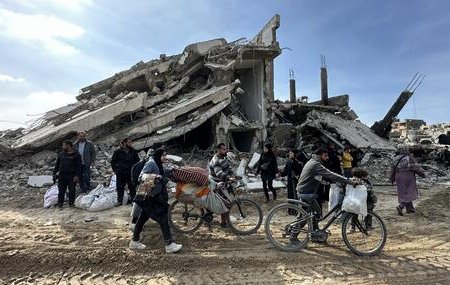The humanitarian situation in the occupied Palestinian territory, Somalia, and Mozambique is spiraling into catastrophe, with millions facing life-threatening conditions as violence, drought, and displacement worsen.
In Gaza, the toll of conflict is mounting daily. More people are killed or injured along convoy routes or where they seek shelter, while hospitals buckle under overwhelming pressure. Patients lie on floors and streets, desperately lacking beds, medical supplies, and equipment. The World Health Organization revealed that over 100 health professionals have been barred from entering Gaza since March 2025, further crippling medical care.
Though Israeli authorities allowed limited commercial goods like rice, sugar, and vegetable oil into Gaza recently, essentials remain scarce and exorbitantly priced sugar costs $170 for a tiny bag, and staples like eggs, poultry, and meat have vanished. Hunger and malnutrition are deepening; the Ministry of Health reported five malnutrition-related deaths in just 24 hours, pushing the total close to 200, half of them children. Fuel shortages are imperiling life-saving operations, endangering over 100 premature babies due to inadequate power for medical equipment.
Meanwhile, Israeli military orders displacing families continue, and shelter supplies have been blocked since early March. The humanitarian community warns that unless Israel reverses restrictions forcing NGOs to expose sensitive employee data, critical aid operations could halt, worsening an already dire crisis.
In Somalia, severe drought devastates central and northern regions. Over 880,000 people face escalating food insecurity, dwindling water, and dried-up wells. Livestock farmers are forced to migrate as water and pasture vanish. The UN’s Somalia Humanitarian Fund has only 17% of the needed $1.4 billion for 2025, limiting the response to urgent needs.
Mozambique’s Cabo Delgado province confronts a fresh surge in violence, displacing more than 57,000 people mainly women and children. With schools doubling as shelters and resources stretched thin, only half of those needing aid have received it. The country’s humanitarian funding stands at a meager 19%, threatening food, water, and shelter access for over a million vulnerable people.
These crises underscore a stark reality: millions across these regions face unimaginable suffering, with inadequate funding and access blocking vital aid. The world’s urgent attention and support are desperately needed to prevent further devastation.
